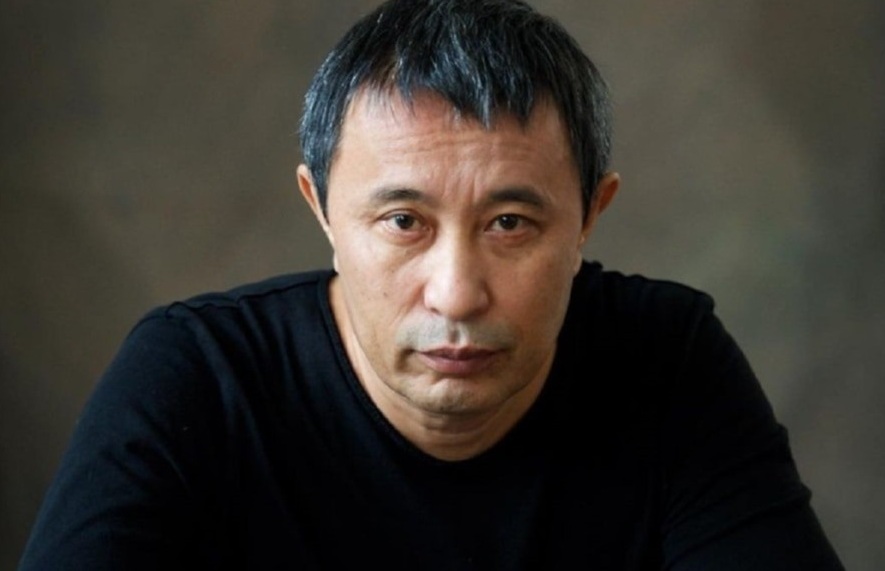Nation's most famous film director bids goodbye over Astana's censors
Ermek Tursunov, whose films have made it to the Oscars shortlist, has left Kazakhstan, denouncing the “degeneration of cultural policy.” His producer’s home was recently searched. To those labelling him a “dangerous dissident,” he replied: “I’m no Solzhenitsyn, but I won’t stay silent.”
Astana (AsiaNews) – One of Kazakhstan’s most renowned film directors, Ermek Tursunov, has left the country, stating he was rejected by his fellow citizens and condemning the “degeneration of cultural policy,” with increasing censorship and oppression, and a climate of fear among the authorities regarding freedom of expression.
Tursunov made his debut in 2008 with Kelin (“The Bride”), which made it onto the shortlist for the Academy Awards in the Best Foreign Language Film category. His subsequent works, including Shal (2012), Kempir (2014), Kenje (2015), Zhat (2015), and Shirakshy (2018), received numerous awards at international festivals across various countries. Beyond directing, Ermek is also a successful writer, having published several acclaimed novels.
In 2018, he was elected president of the Union of Filmmakers of Kazakhstan and served on the “social trust council” under the presidential administration. He was honoured with the title “Honoured Artist of Kazakhstan” in 2016.
In his farewell post on Facebook, Tursunov expressed that he “sees no other way out” but to leave his homeland, sparking strong reactions across Kazakh society — some denouncing him, others offering support.
Speaking to journalists from Radio Azattyk, he said: “There were always warning signs, and now I feel I wasted too much time trying to reason and debate with the authorities, who often turn out to be nothing more than opportunistic incompetents.”
He added that the situation has deteriorated not just in the cultural sphere but across all areas of social life, “where positions of power are held only by relatives, friends, or servants of the powerful.”
The director has fiercely criticised Astana’s Ministry of Culture, insisting that “culture is the most vital dimension in any state’s life, yet here it is treated with complete superficiality.” As a result, he has been branded a “troublemaker.”
He notes that “throughout history, artists and those in power have always been adversaries. The authorities want artists to serve them, while true artists require freedom of creative expression.” Tursunov referenced Russian philosopher Nikolai Berdyaev’s words: “The state exists not to build paradise on earth, but to prevent the earth from becoming a hell.”
In recent months, a campaign to discredit Tursunov’s public image has escalated, portraying him as a “dissident dangerous to society.” He remarked: “That’s almost a compliment, even though I’m no Solzhenitsyn — but I will not stay silent.” His criticisms target the state of cinema, music, theatre, libraries, and television — all of which he sees as tools “to weaken the population.”
On several occasions, including in the presence of the president and members of government, the filmmaker and writer proposed non-ideological cultural support measures to help revitalise Kazakhstan’s “great human capital,” but received no response.
His producer, Kanat Torebay, recently had his home searched by anti-corruption agents and was interrogated without any formal charges. Tursunov pointed out that “all my films were reviewed in advance by the KNB (Kazakhstan’s national security service), the audit chamber, and the Ministry of Culture’s committees — if there had been any issues, they would have been flagged much earlier, not years later.”
Torebay, a well-known producer who has worked with many directors, became the subject of an investigation over funding for the film The Long Echo, directed by the now-deceased Satybaldy Narymbetov.
However, the interrogations focused entirely on Tursunov. This episode was the final straw in the campaign of censorship against him. Still, the director insists, “I may be absent physically from Kazakhstan, but in spirit and heart I am closer to my fellow countrymen than ever before.”







.png)










